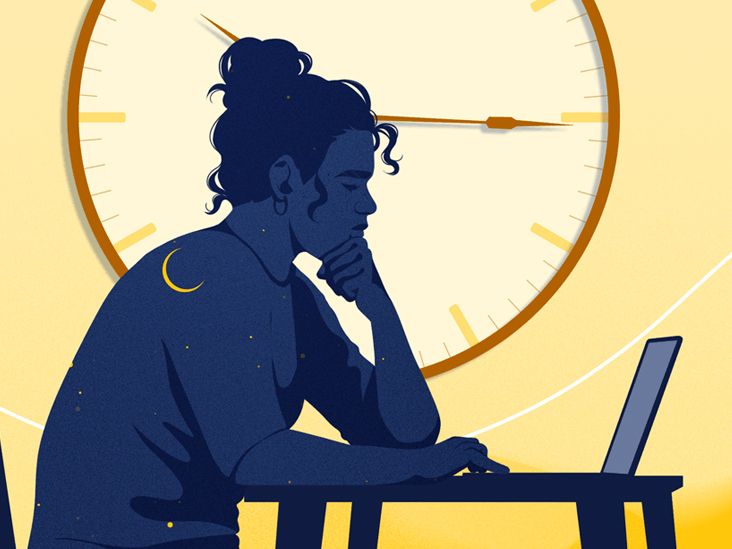
The butterfly effect is the idea that small actions can lead to potentially life changing consequences — a butterfly flaps its wings, and several weeks later, a tornado happens.
Tiny, incremental changes can lead to devastating effects.
As someone with OCD, I constantly fear that I’m the butterfly, making small decisions and taking small actions that can have horrific effects on those around me.
I fear I’ll tell a white lie, or omit the truth, and someone will die because of it.
I fear I’ll go to the store at the wrong time and be the victim of a robbery I could’ve avoided by leaving 5 minutes later.
I fear I’ll order something for delivery, and the courier gets into an accident on the way to me.
And more than that, when bad things happen, I fear that I was the cause of it — that someone was severely hurt because of a decision I made.
This is living with regret.
Certain cognitive distortions are common in people with obsessive-compulsive disorder (OCD) and other mental health conditions.
Cognitive distortions are errors in thinking that distort the way we see ourselves and the world around us. In other words, they’re ways of thinking that aren’t based on evidence.
Everyone can engage in cognitive distortions.
When we get into the habit of pausing and looking at our thoughts more objectively, we can recognize these distortions for what they are. We can ask ourselves, “Is that likely? Is that true? Is that logical?”
Many of the cognitive distortions common in OCD can make it difficult to make decisions (or to make peace with the decisions you’ve already made).
Examples of these distorted thoughts include:
- Overestimating danger. For example, you might assume that you’ll become violently ill if you don’t wash your hands every hour, even if you’re alone at home and haven’t touched anything dirty.
- Overestimating consequences. For instance, you might fear making a tiny mistake at work because you assume it’ll eventually lead to your company shutting down and everybody losing their jobs.
- Inflating responsibility. You might assume your actions are the only actions that actively contribute to huge consequences. For example, you might believe you’re responsible for a drought because you once left a tap running.
People with OCD are usually able to recognize that these thoughts aren’t logical, but we still have a tendency to think in this way on some level. These thoughts can become overwhelming and difficult to address.
Many people replay their regrets over and over in their heads. They might imagine different scenarios — what if I said, did, or thought something different? — or fantasize about different outcomes.
Regret is a common human emotion and not a sign of mental illness. However, when taken to an extreme, this sort of “what if” thinking could be a sign of OCD.
Real-life OCD, also known as real event OCD, is when you play real scenarios from your past over and over in your head to the point of obsession, often with the desire to change the past.
Movies that address this concept, like “The Butterfly Effect” and “Mr. Nobody,” accurately depict what happens inside my head when I overthink decisions I’ve made.
Both of these movies show how decisions the main characters make can drastically change their own lives and the lives of others.
And when my obsessions are around past events, I often wish I was like the main character in “The Butterfly Effect” so that I could time travel and act to prevent awful events from taking place.
I deeply regret not taking those actions — even though I couldn’t have predicted the outcome at the time.
For example, when somebody drowned on a beach near my house, I was consumed with the idea that I could have been on the beach and prevented them from going into the water.
I regretted not going to the beach that specific day, and the regret consumed me. I felt I could have been the butterfly who flapped my wings.
But this fantasy isn’t helpful. For one, I can’t time travel, so it’s not a helpful thought experiment.
And secondly, it’s not actually my responsibility to “fix” everything that goes wrong. It’s not possible for me to prevent every drowning and every accident — it’s out of my control.
Doubt is a driving force in OCD. Regret is doubt in the past tense.
Often, our meditations on regret include thoughts about whether we really did the right thing, whether we could’ve done something different, or whether we’re ultimately responsible for terrible events.
What doubt and regret often come down to is control.
The idea that you can’t control things around you is scary.
I often feel like my tendency to inflate my own responsibility is because I want to convince myself that I can control things that I can’t actually control. I can’t control every drowning, accident, or tornado — and that idea is scary.
I find that recognizing this fear, and allowing yourself to feel it, can help you work through that regret.
Accepting that you’re not responsible for others’ pain means accepting that you’re not in control of everything, which is terrifying but liberating.
I also try to remind myself:
- The fantasy isn’t helpful. Replaying the events over in my head won’t change what happened, but it will make me feel bad, so it’s not constructive to engage in.
- I can’t change the past. This is physically impossible.
- I also can’t predict the future. There’s a difference between predicting the logical consequences of our actions and seeing into the future. I can’t expect the latter from myself.
But what happens if you did actually make a bad decision that led to someone being hurt?
It’s OK to feel regret, and it’s OK to feel guilty. Those are both common human feelings that aren’t inherently harmful.
What matters is that you process it in a healthy way, instead of engaging in cognitive distortions and allowing them to fuel obsessions. It’s possible to feel bad without it becoming a point of obsession.
Regret is something we all feel from time to time. But if you have OCD, you might find that regret is particularly difficult to process.
If you need support, consider finding a therapist with experience in treating OCD. They can help you learn to identify cognitive distortions and process past events in a less distressing way.



